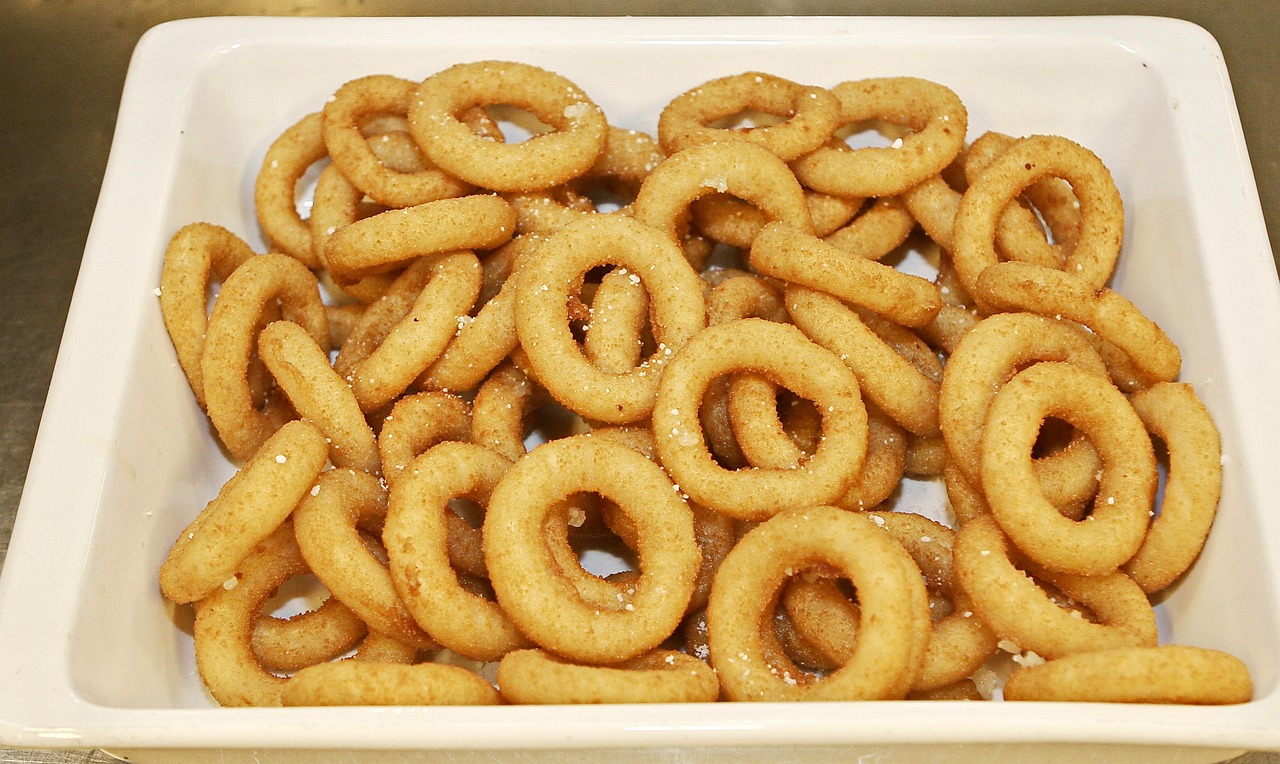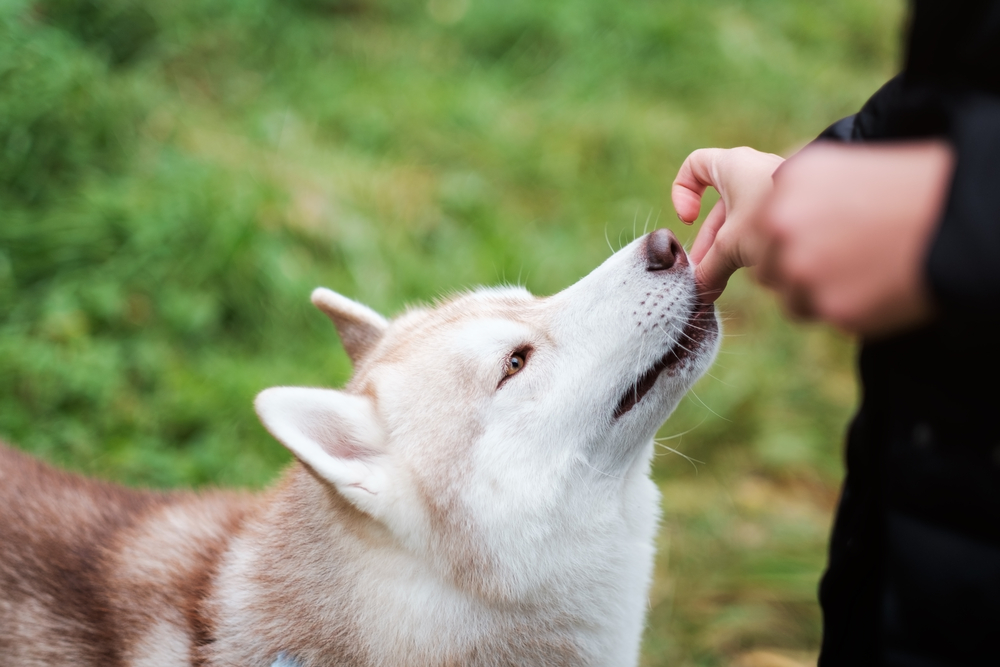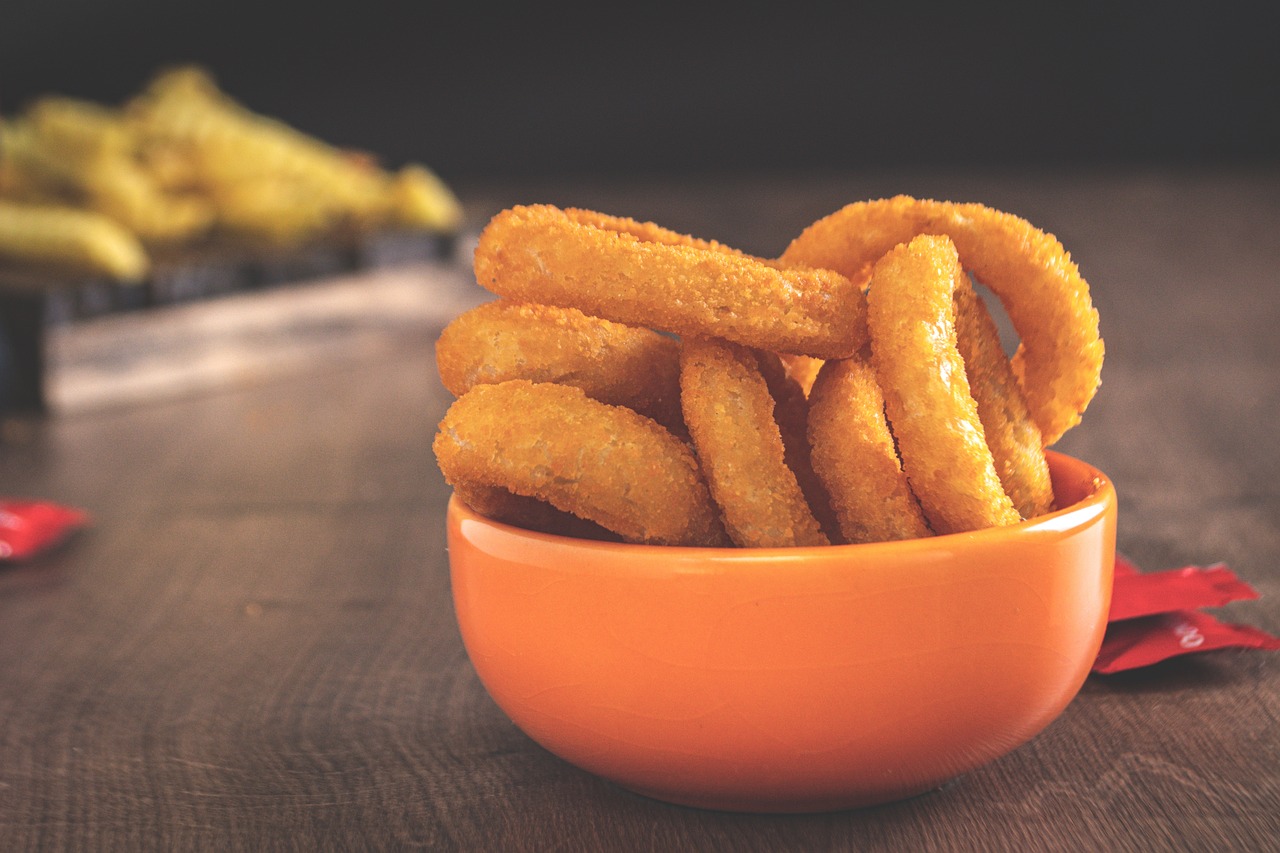You love giving your dog a bite of your food every now and then as a special treat, and most of the time, that’s fine. Many human foods are safe (though unhealthy) for canines to consume in moderation. But this doesn’t apply to all the food you might have on your plate.
Take onion rings. Your pup might give you those wide begging eyes when they see that crispy deliciousness in your hand, but can dogs have onion rings? Absolutely not. Onions are part of the Allium family; anything in that classification is toxic to canines. But why?

Why Can’t Dogs Eat Onion Rings?
Why are onion rings so dangerous for your pup? Onions (and other plants in the Allium family, like garlic and leeks) all contain N-propyl disulfide. What is N-propyl disulfide? This compound is a toxin that attacks a canine’s red blood cell membranes. This means the red blood cells can’t carry oxygen as well as they usually would and makes the membranes fragile which can lead to the cells bursting. And that is what causes anemia, a condition that can result in a range of signs from pale gums and lethargy to death. Onions can also cause inflammation of the gastrointestinal tracts and signs of stomach upset.

Dangers of Feeding Onion Rings to Dogs
The most significant danger of feeding onion rings to your dog is, of course, the toxicity of the onion. But there are other reasons this fried food isn’t good for your canine companion.
As a fried food, onion rings contain a ton of calories and fat, neither of which is healthy for your dog. Dogs should receive all the calories they need from the dog food they eat daily, so any kind of treat given to them is simply extra calories. If you give your pup treats often (particularly if they are of the fried variety), those additional calories begin to add up. This can lead to weight gain and obesity, which increases the risk of diseases like pancreatitis (which can lead to diabetes) and joint problems. Your dog can also develop pancreatitis from a one-off fatty meal.
What Happens if My Dog Eats an Onion Ring?
So, what happens if your dog manages to sneak a bite or an entire onion ring? It depends partly on the dog, particularly their size. In many cases, a dog will be mostly okay, as just a bite or two of an onion ring won’t always cause complications. However, this may not necessarily hold true for a toy breed or smaller dog; just a bite or two could end up causing them harm.
Even if your pup doesn’t experience an adverse reaction to the small amount of N-propyl disulfide they had, they could still end up with an upset stomach or diarrhea due to the onion and fried aspect of this food. Again, this could hold especially true for smaller pups.
In the case of the onion ring, it is always better to avoid giving this food to your furry friend. Better safe than sorry.

What Do I Do if My Dog Eats an Onion Ring?
If your pup sneaks a taste of your onion rings, call your vet and keep a very close eye on them, but keep in mind it could take days for them to show signs of onion toxicity. Your vet may want you to come in right away to make your dog vomit to reduce their chances of toxic effects, but this will depend on your dog’s size, health, and how much they have eaten.
If you need to watch your dog closely for the next week, you need to know what to look for.
If your pup is experiencing onion toxicity, you’ll see signs like:
- Panting
- Higher heart rate
- Weakness
- Lethargy
- Vomiting
- Diarrhea
- Red-tinged urine
- Pale gums
- Lack of appetite
- Difficulty breathing
- Collapse
If you see any of these things in your pet, you should get them to the veterinarian, and if the signs are severe, go to an emergency clinic immediately.

Conclusion
Can dogs eat onion rings? No! Onion rings are toxic to canines because they have onions in them, and onions are part of a plant family that contains a compound that is toxic to dogs. Plus, fried foods aren’t healthy for your pup, so they should be avoided.
If your dog sneaks a bite of your onion rings, call your vet and watch your dog closely. If they show signs of toxicity, you should take them to the vet.
Featured Image Credit: FabricioMacedoPhotos, Pexels
